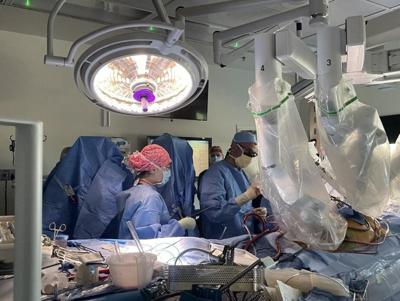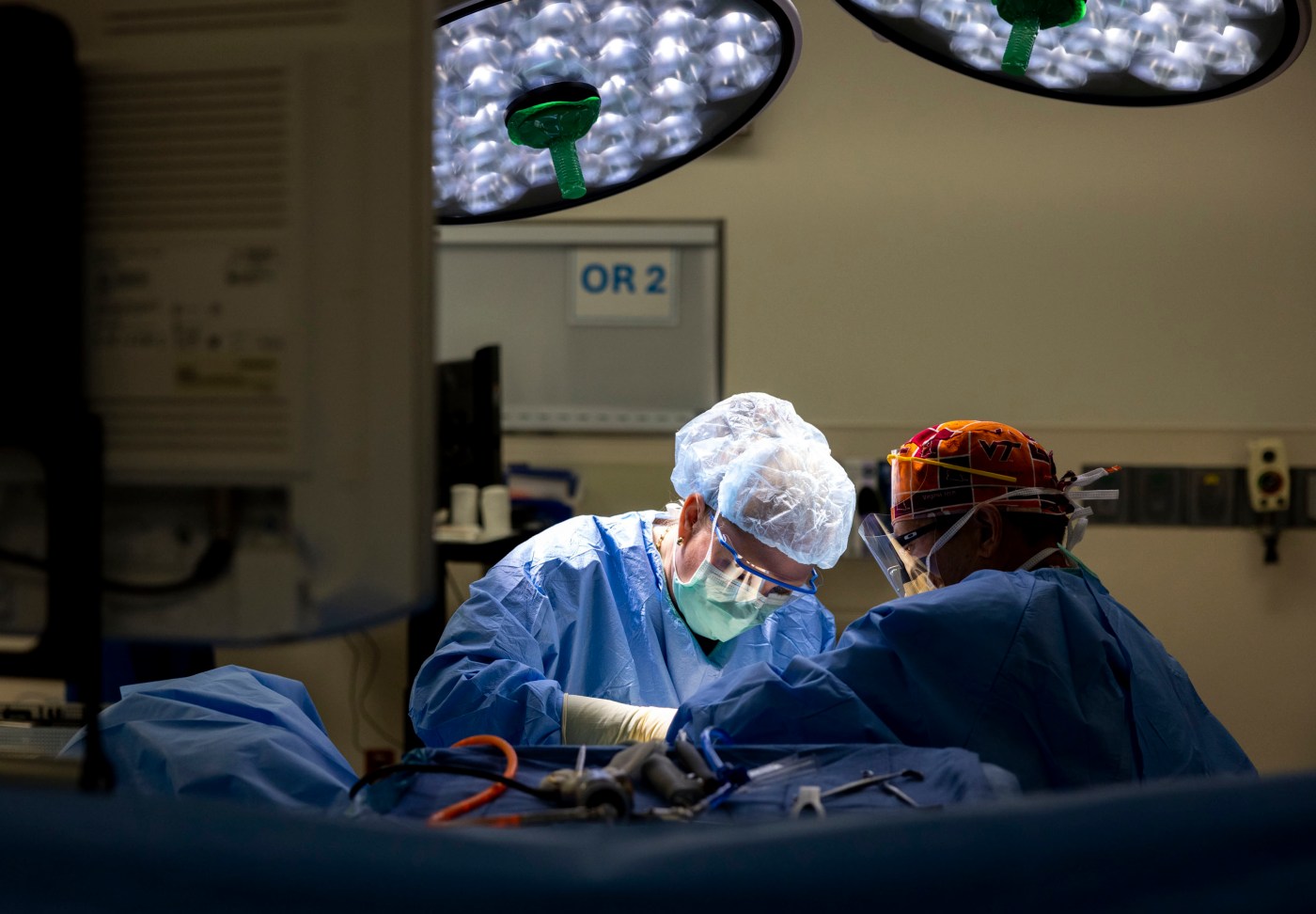
Dartmouth Hitchcock Medical Center (DHMC) has made significant strides in cardiac surgery by becoming the first hospital on the East Coast, north of Boston, to perform minimally invasive mitral valve surgery using a surgical robot. This milestone was achieved on August 15, 2023, marking a pivotal advancement in treating mitral valve prolapse, a condition that can lead to severe heart complications if left untreated.
The mitral valve plays a crucial role in heart function, connecting the upper and lower left chambers. When mitral valve prolapse occurs, patients may suffer from severe leakage, potentially resulting in permanent heart damage. Traditionally, valve replacement with an animal valve has been an option, but surgical repair remains the preferred method when feasible. Nationwide success rates for mitral valve repair surgeries vary significantly, estimated between 60% and 70%. However, DHMC boasts a remarkable success rate exceeding 95%, according to Dr. Henry J. Tannous, the section chief of cardiac surgery at the Heart and Vascular Center (HVC) at DHMC.
The introduction of robotic assistance in surgeries has been in development for two decades, but its recent application has gained momentum over the past five years. Dr. Tannous and his cardiac surgery team dedicated a full year to preparing for the robot’s integration, visiting other leading academic medical centers in Atlanta, Manhattan, and Los Angeles to observe its usage in action. The timing of the robot’s launch coincided with the arrival of Dr. Jose R. Rodriguez, the newest cardiac surgeon at DHMC, who has previous experience with robotic surgeries.
“The fact that we had the whole team getting ready before his arrival made Dr. Rodriguez an ideal match,” Dr. Tannous remarked. His prior experience at Stony Brook University Hospital also contributed to the team’s readiness. “When the day of the first surgery arrived, it was like business as usual.”
The initial patient has already returned home, recovering well, and a second robot-assisted mitral valve repair was successfully performed on August 18. Looking ahead, two additional surgeries are scheduled for September, with more planned in the near future.
A collaborative approach is vital for successful surgeries, and the robot is a valuable tool in this process. It enhances precision with a magnification capability of ten times for suture placement, providing surgeons with greater dexterity. However, Dr. Tannous emphasizes that the robot is an instrument, not the focal point of the procedure. “The robot is a very fancy tool, but it can’t do the surgery or teach us how to repair a valve. It allows us to do a better job, which leads to better outcomes for patients.”
Currently, the robot is employed solely for mitral valve repairs at DHMC, but Dr. Tannous expressed hopes for its future application in other cardiac procedures. “Robotic surgery is less invasive, allows for less time spent in the hospital, and faster recovery,” he stated. “This is a procedure that patients are willing to travel long distances for. We’re thrilled to be able to offer it to patients in our region and beyond, without the need to go to a major city out of state.”
As DHMC continues to innovate in cardiac care, the integration of robotic technology represents a significant advancement, promising improved patient outcomes and a progressive approach to heart surgery.







